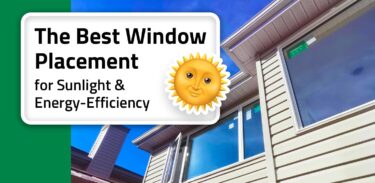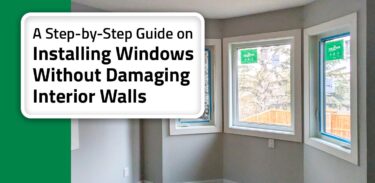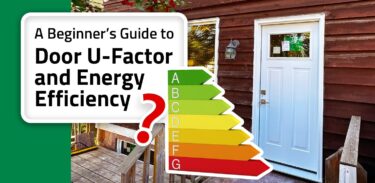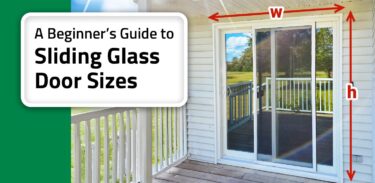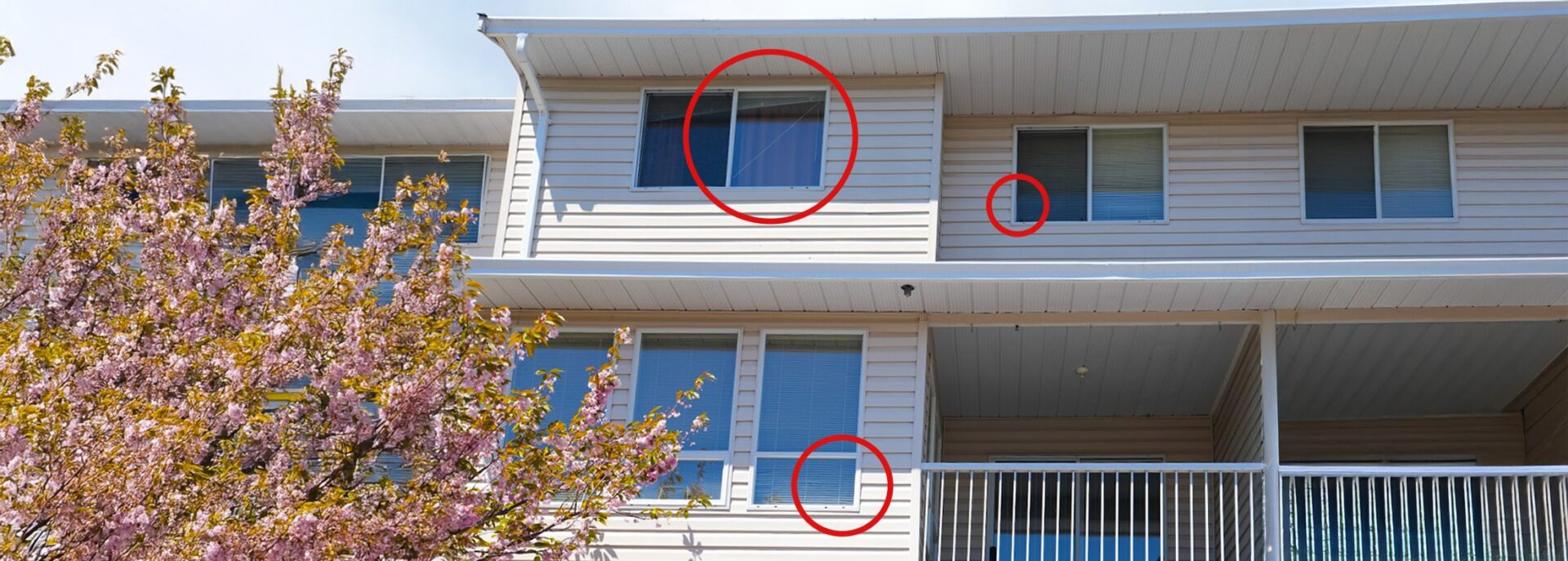

6 Reasons to Replace Windows (And Why You Should Act Now)
Jan 10, 2025
10 min read
609
It’s pretty obvious when your home’s roof needs replacement; it leaks. You know when it’s time to replace your furnace; it stops heating.
But how do you know when it’s time to replace your windows? The reasons are a little more subtle and the changes are usually more gradual, so making the decision to replace them is much more difficult.
Windows are regularly exposed to harsh elements from weather and sunlight. Keeping them protected and in good condition can be a full-time job and eventually, a losing battle.
If you’ve been doing your best to maintain the windows in your home and you’re struggling to keep up, take a look at these five issues to determine if it’s time to make a change.
Your Windows Are Difficult to Operate
Do you have problems opening your windows? Once they’re open, do you have to use a prop rod to keep them that way? Do they close tightly or can you feel air leaking through?
As your windows age, they may start to sag and warp. There can be a number of reasons this happens such as the type and size of window, exposure to the elements, and installation method.
- Wood bay and bow windows can be susceptible to gravity and a lack of support. They often put undue pressure on the casement window hinges and cause them to bend. Eventually, the window pane will become misaligned with the window frame, and prevent the windows from opening and closing smoothly;
- Old double-hung windows with operational problems may also have a broken pulley system. While repairs can sometimes be made, usually the entire channel balance must be replaced;
- Sliding windows usually struggle with their tracks, especially if not properly maintained for years, thus requiring an upgrade or at least a deep cleaning to last a bit longer
Other causes of poor operation can be related to the foundation shifting or settling, frame deterioration or even paint that impedes smooth opening and closing.
Each of these issues point to the need for replacement windows. Dependent on the specific reason for the poor operation, you may need to consider a full-frame replacement instead of a retrofit.
Your Notice Window Leaks, Condensation, Ice or Decay
You may have noticed condensation build up on the inside of your windows occasionally when the humidity is high, and that’s okay. If there’s no or low humidity and you’re still seeing water running down the window, you’ve got a problem.
The same goes for frost build-up in winter and fog between window panes. These conditions indicate that there is a broken seal and that the window is not insulating as it should. Outdoor air should never penetrate through the glass seal to the interior of your home. While it is possible to re-seal the window, there may be other issues causing problems.
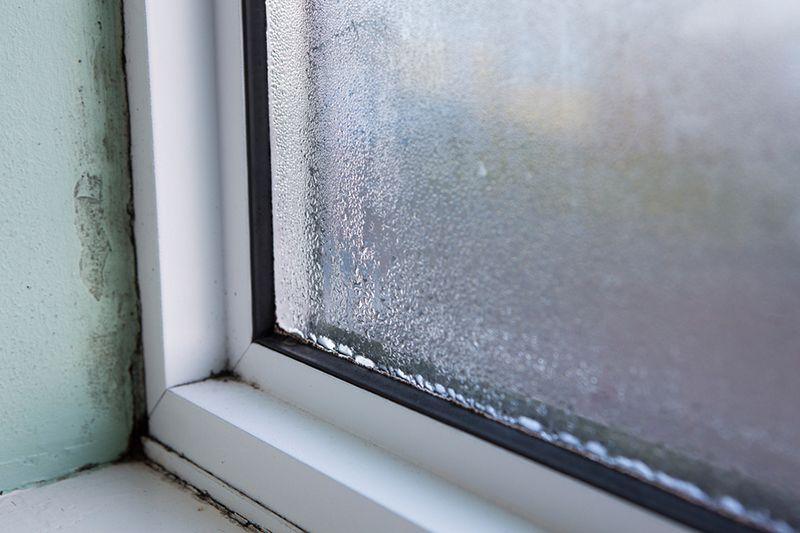
If your wood window has had condensation build-up for a while, that excess moisture will be pooling along the window frame and possibly dripping down the wall. All this added water will cause your window to rot. You may notice dark or spongy patches along the window sill or bottom of the window frame. This is a sure sign of decay and time for an upgrade.
Leaking windows may not seem to be a giant concern, especially if it’s only when it rains or is cold out. But in addition to the structural damage it can cause to the window, wall and floor, you might also be at risk for mould growth. Even if you can’t see mould growing on the wallboard, it’s likely you’ll find some inside the wall. It can pose a health risk to you and your family, so it’s important to deal with leaks as soon as possible by replacing the problem windows.
Your Energy Bills Are Skyrocketing
How often have you been sitting next to a window during the winter months and had to put on a sweater even though the rest of the room is comfortable? What about during the warmer months? Can you feel the humidity seeping in from the outside when you put your hand near the window frame?
If you’re shaking your head “yes,” you’re throwing a ton of money away in lost heat and air conditioning, and it’s definitely time to replace those old, in-efficient windows. Did you know the average Canadian household spends about $2,200 annually on energy, with costs usually soaring even higher for older homes with poor insulation?
That’s because windows more than 10-years-old were built differently than they are today. Energy Star certified windows and doors are designed with new technology to help you save an average of 12 percent on your household energy costs.
Consider replacing old, drafty windows with high-efficiency, double- or triple-pane windows. Extra features such as those with argon gas or low-emissivity (Low-E) glass cost more initially but will save significant dollars on reduced energy bills. Low-E coatings reflect the sun’s heat during the summer months and keep heat in during the cooler winter months—saving on both heat and air conditioning expenses.
Your Home is Exposed to Extreme Noise Pollution
Do you love the convenience of living in the Metro area but struggle with all the noise from traffic, people, pets and every other sound that penetrates through your windows? There’s a solution to that with soundproof replacement windows.
While not all noises can be eliminated, according to House Logic and housing experts with REALTORS, noise reduction technology can “block up to 90-percent to 95-percent of noise coming through windows.”
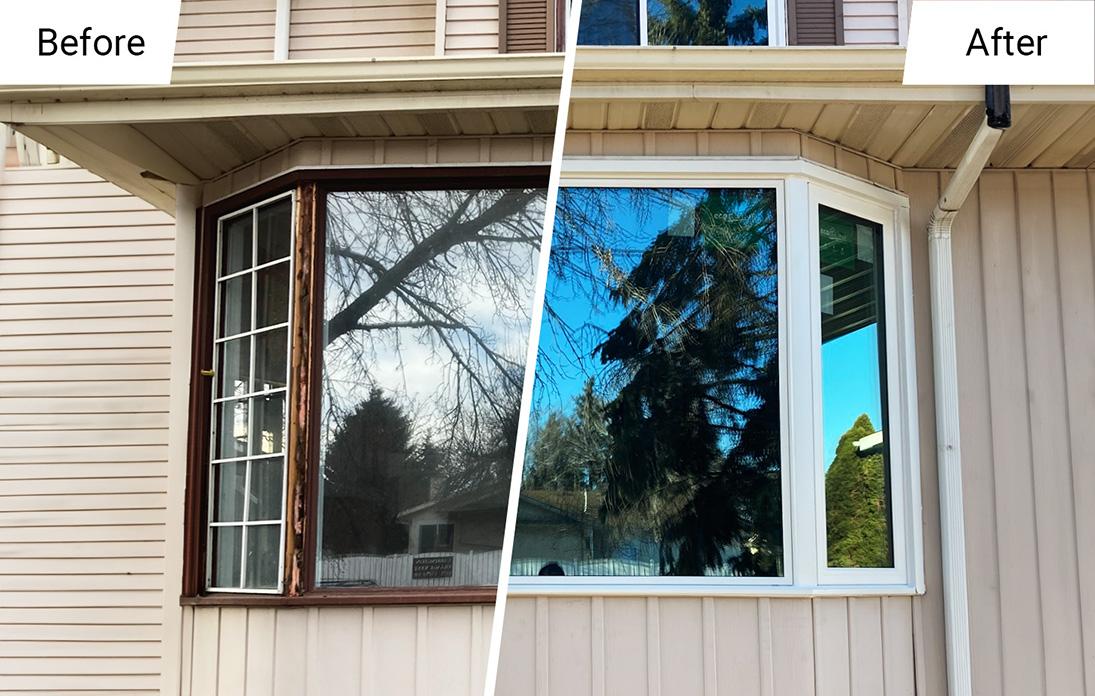
This is accomplished by creating a barrier that captures the sound instead of allowing it to penetrate inside. Blocking sound waves is done with thicker glass, increased air space between the window panes, and using a laminated (layered combination of glass and plastic.)
There is a modest expense to including noise reduction technology with your replacement windows, but imagine the quiet solitude you’ll experience inside your home while the world hurries by outside.
You Want to Increase the Curb Appeal of Your Home and Its Value
As you drive through your neighbourhood and look at all the beautiful homes, what catches your eye? Perhaps you notice well-manicured landscaping or an architectural detail like natural stone? What you definitely notice are the windows.
If your windows are broken, peeling, rotting or mismatched, they’ll detract from the rest of your home. That’s why improving the aesthetics and curb appeal with new replacement windows you love is vital. No matter your budget, there are all types of styles, shapes, sizes and colours to enhance your home’s appearance and save you money for years to come.
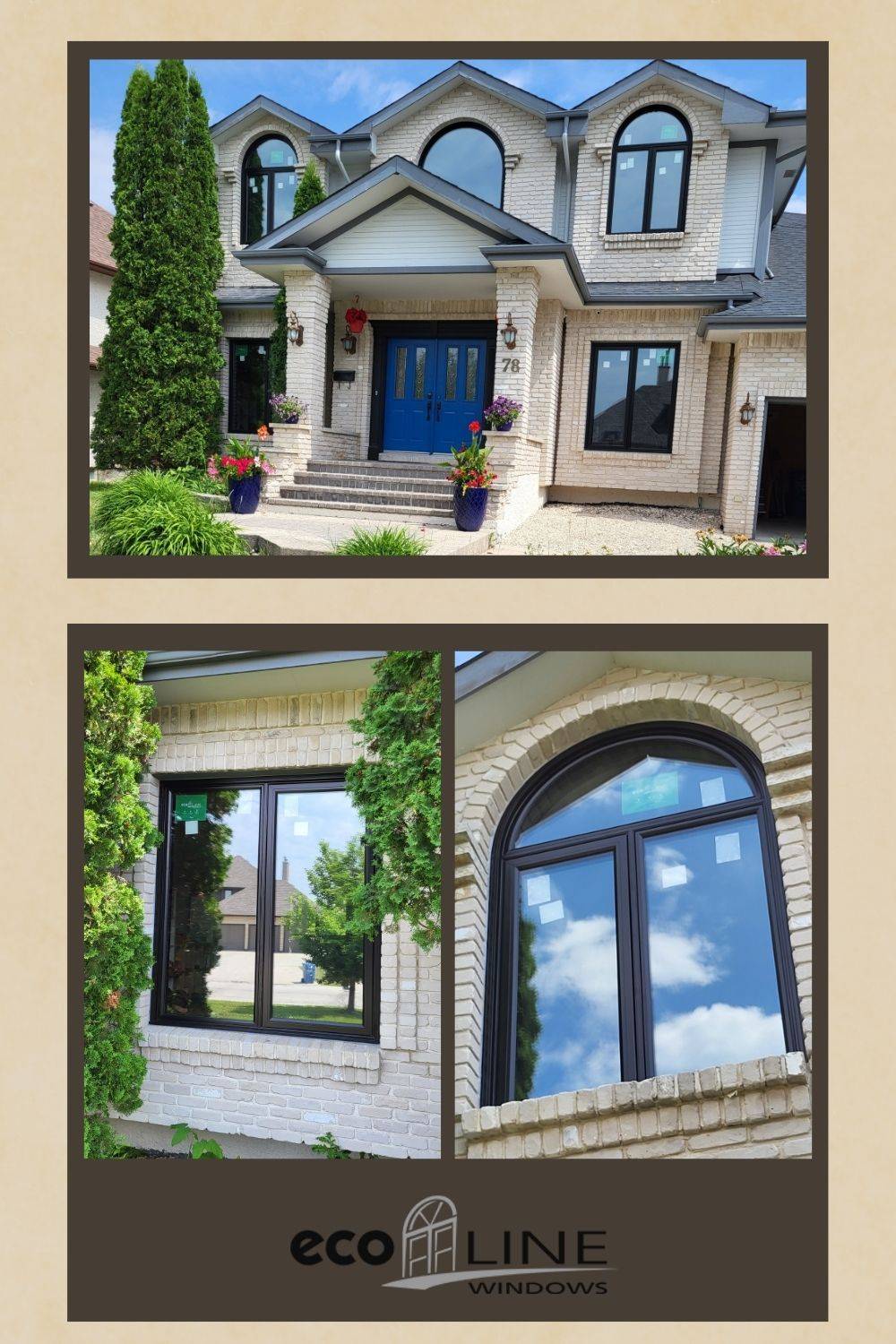
A 2024 Canadian Home Builders’ Association survey found that high-efficiency windows are still (5 years in a row) among the top 10 features Canadian home buyers loom for. This demonstrates the importance of window upgrades when looking to sell a home.
Moreover, new windows come with a solid ROI of about 70% and are eligible for maximum government rebates available in your area, making them even more affordable.
You Want to Protect Your Furniture from UV Damage
One often overlooked benefit of replacing old windows is protection from harmful UV rays. Modern energy-efficient windows often come with advanced coatings, such as Low-E (low emissivity) coatings, designed to block a significant portion of ultraviolet (UV) radiation while allowing natural light to brighten your home.
Why is this important?
- Prevents Fading: UV rays can cause fading and discolouration of furniture, carpets, curtains, and even hardwood flooring. By reducing UV exposure, new windows help maintain the vibrant colours of your interiors for years.
- Protects Health: UV rays don’t just damage furniture—they can also harm your skin with prolonged exposure. Windows with UV-blocking technology contribute to a healthier living environment.
- Energy Efficiency: UV protection reduces heat gain, preventing your rooms from overheating in summer and reducing energy costs.
Minor Fixes to Prolong Your Windows’ Lifespan
While major issues like poor energy efficiency, stuck sashes, mould, or leaks are all clear signs that your windows need replacement, some smaller problems can be addressed with quick fixes by retrofitting.
Tackling these minor issues can extend the longevity of your units and improve their performance without replacing old windows. Below are some common window issues and how to fix them:
- Reapplying Caulking: Caulking can crack or peel over time, leading to air leaks and water intrusion. Removing the old caulking and applying a fresh seal can significantly improve your window’s insulation and prevent moisture damage.
- Adding or Replacing Weatherstripping: If you feel drafts around your windows, the weatherstripping may be worn out. Installing new weatherstripping around the frame is a simple DIY project that enhances energy efficiency and keeps the cold out.
- Fixing Minor Hardware Issues: Loose or damaged locks, handles, or hinges can compromise both functionality and security. Replacing these parts is usually inexpensive and quick.
By addressing these minor issues, you can keep your windows functional and efficient for longer. However, for larger or persistent problems, a full window replacement remains the best choice.
F.A.Q
Why do windows need to be replaced?
Windows need replacement for various reasons, including poor energy efficiency, damage, or aesthetic updates. Common reasons to replace windows include reducing drafts, eliminating leaks, and improving curb appeal.
When should you replace windows?
Consider replacing old windows if you notice drafts, condensation between panes, or difficulty opening them. Windows over 20 years old often lack modern efficiency features. If you no longer feel comfortable with windows, it’s time to upgrade for better comfort and performance.
How often should windows be replaced?
Well-maintained vinyl windows can last 20-25 years. But if you are looking for the replacement today, chances are you have old wood windows with rotten frames or leaks, so changing them with new vinyl units will definitely worth it to have the next several decades hassle-free.
Can you sell old windows after replacing them?
Yes, you can list old windows for sale if they’re in good condition. Many buyers look for vintage or reusable materials. Selling old windows is a great way to offset costs when replacing old windows, especially if they feature unique designs or quality wood frames.
1750 Coast Meridian Rd #102,
Port Coquitlam, BC V3C 6R8
100, 17866 106A Avenue,
Edmonton, AB, Canada,
T5S 1V3
3307 Dunmore Rd SE #12,
Medicine Hat, AB,
Canada, T1B 3R2
2081 Merivale Rd #201, Ottawa, ON, Canada, K2G 1G9
by appointment only
109 Ilsley Ave Unit #3, Dartmouth,
NS, Canada, B3B 1S8



